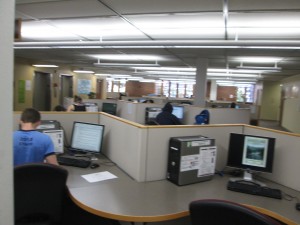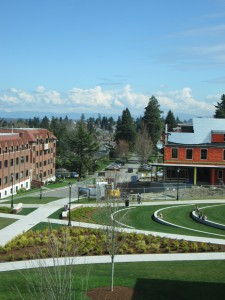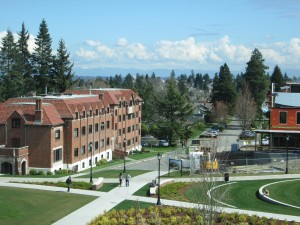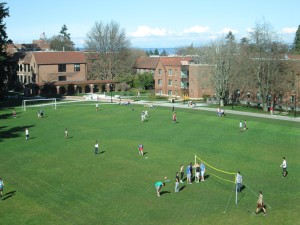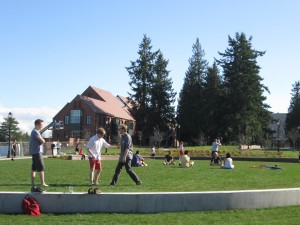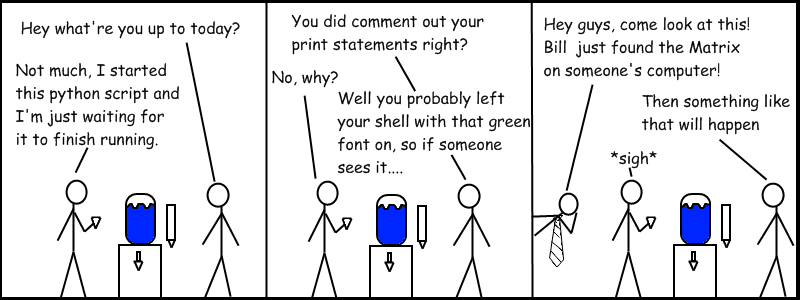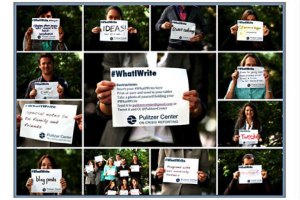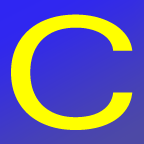
I spent part of my winter break developing an iPhone/iPad app called Circle Draw that I was fortunate enough to have accepted by Apple’s app store earlier this week. If you would be interested in trying the app (it’s free!), I would be extremely grateful. Here’s a link to it:

I’d love to hear what you have to say about it. It’s a photo manipulation app that lets you combine photos, replace the backgrounds of your photos, and create photo collages. If you create anything with Circle Draw that you’d like to share I’d love it if you’d pass it on (and I may even feature it on Circle Draw’s website, with your permission!). You can direct any feedback or send your Circle Draw creations to me at circledrawapp@gmail.com
Now a little bit about the app. Circle draw is the only app that lets you mix your photos together just by tracing. If you’ve ever wanted to substitute the background your photo for, say, a beach vista, now you can. You can cut out the region you want to keep of a photo using the iPhone’s touch screen, then place it on another photo. The app lets you save your creations to your photo library to share with friends.
Here are a few screenshots that may help give you an idea of what the app can do (thanks to Puget Sound’s beautiful campus for providing the perfect setting for these screenshots!):


Also, I’d like to give a huge thanks to the great people over at AppPicker for their wonderful review and excellent description of Circle Draw: http://www.apppicker.com/reviews/2013/2/11/Circle-Draw-app-review
If you’re interested in reading more about the process of creating an iPhone app and getting it onto the Apple store, read on! Otherwise, I look forward to hearing from you about the app, and I hope you enjoy it!
***
The App Store
While landing a number 1 app is hard to do, I hope to dispel the recent myth that visibility on the app store is out of reach without massive advertising campaigns or an established name. Creating the next viral app – as with creating the next viral anything – may be hard, but more modest returns are absolutely within reach. My app received its first 1000 downloads in under 2 days. It’s currently in the top 500 US photo and video apps. The iPhone app store provides great visibility, but one of the lesser known details of the store is its enormous international reach.
I was surprised to find that the majority of my app downloads come from outside the US. The international reach of the app store is incredible. My app’s been downloaded everywhere from South Africa to Israel. It’s reached countries including Maita, Malaysia, Macao, Lithuania, Lebanon, Latvia, Kuwait, Kenya, Kazakhstan, Jordan, the Netherlands, Mauritius, Armenia, Ireland, and more. I’ve gotten a lesson in global economics that I didn’t anticipate, and I’m so lucky to live in a time where I can distribute my software all over the world just by submitting it to Apple.
***
The Idea
I’ve been interested in photomontages and photocomposition ever since I tried to set up a green screen in my room so that scenes filmed in my makeshift studio could take place anywhere I wanted. My experiment in green screen technology was unsuccessful and taught me that photo manipulation is hard. So when I decided to develop for the iPhone, the touch screen’s simplicity immediately called out to me. What if you could replace the backgrounds of your photo just by tracing the foreground and literally placing it onto a new background?
The app called out for the iPhone’s touch screen interface, but I was surprised to find that nobody had made this type of app before. There are apps let you edit your photos by erasing the background and adding a new one, but this erasing method felt more clunky then simply highlighting, and, while accurate, it took longer. I had found an idea ready that I hoped might fill a niche in the iPhone market.
***
Writing the Code
Learning to write an iPhone app required learning a programming language I had never used before: Objective C. I had tried to pick up Objective C on two previous occasions without much success. Both these times were before I’d done any serious programming. After coming up with my idea, I decided to try to return to Objective C once more to see if my experience coding at Puget Sound might help make picking up Objective C easier.
The first few days were tough going, but after finding some great books for iOS and mining the internet for resources, I slowly but surely began to learn to write iPhone code. I have to say that I could not have finished the app without the skills I’ve learned at Puget Sound. My computer science classes at Puget Sound gave me the skills to teach myself Python so that I could work on a science project at the Oregon Health Sciences University. They also gave me the confidence to learn Promela on my own, an entirely different language used for mathematical software verification. Without taking classes in programming, math, and assembly language, I certainly could not have taken on this project. I am so grateful that my classes fostered so many computer science skills – not just programming technique, but skills in independence, problem solving, researching the answers to programming questions, and knowing where to turn when you get stuck. Making an app wasn’t easy, but my classes provided me with direction such that I knew how to keep going and what to keep trying when I got stuck. Without this, I would be back where I was years ago trying to learn Objective C in the dark.
Beyond additional experience with programming, I also had an idea that I was really passionate about that kept me going even through numerous challenges. I had to stretch myself beyond what I’d ever done in programming classes, and this motivation came from and idea that I really wanted to implement and that I hoped would fill a gap on the app store.
Finally, one thing about Objective C that was new to me is its extensive use of software libraries. Apple has made tons of libraries on virtually anything you’d ever want to do with an iPhone. If I had more time I would have added photo effects, face recognition and more to my app. I’d been practicing the use of programming libraries every day in class at Puget Sound, but I’d never used this many libraries, and in an entirely new language. What I really needed here were research skills – skills to read documentation and decide what code to use to solve what problems. My experience with research certainly helped me with this new approach to programming.
***
Finishing Touches
 I’m not an artist. If you talk to anyone who knows me you’ll learn that I am terrible at drawing pictures and always have been. And that’s precisely why I made this app – to let anyone [from Picasso to me] make their own artistic creations.
I’m not an artist. If you talk to anyone who knows me you’ll learn that I am terrible at drawing pictures and always have been. And that’s precisely why I made this app – to let anyone [from Picasso to me] make their own artistic creations.
Unfortunately, there’s not an app for designing logos and app screenshots (well, there probably is – I just didn’t have the time to find it). One of the parts of designing an app that I did not anticipate was the need for numerous logos of different sizes – iPhone, iPad, iPhone Retina, iPad Retina, and so on. The same process was required for splash screens and screenshots.
The app was done, but now I was completely intimidated by this last hurdle: making app art. It was like I was starting from scratch. I’d written code for weeks, and now my reticence in terms of logo design was catching up to me.
Lets just say I spent an incredibly long weekend with Photoshop designing, resizing, scraping, and eventually creating tons of different sized logos and pieces of art. After chatting with my brother, whose penchant for art excels precisely where mine fails miserably, we came up with multiple logo ideas, one of which I ended up using (primarily because it was easy enough for me to make in spite of my artistic struggles).
For better or for worse, I had made a logo for Circle Draw, and my app was ready to submit.
***
Submitting the App
I put the finishing touches on the app and then shipped it off to Apple for review. It was out of my hands now. I tried to keep calm but I couldn’t stop thinking about the app – had I forgotten something, was there a bug hidden somewhere, would it crash the moment it was tested… Fortunately, things went generally quite smoothly and the app finally changed from “In Review” to “Ready for Sale” in the course of a few hours last week. My app was ready!
If you want to find out more, visit my website at circledraw.wordpress.com or shoot me an email at circledrawapp@gmail.com. I hope to write some more posts soon about the process of making this app, and to update you on some of the great events that have been happening on campus lately. Until next time!

